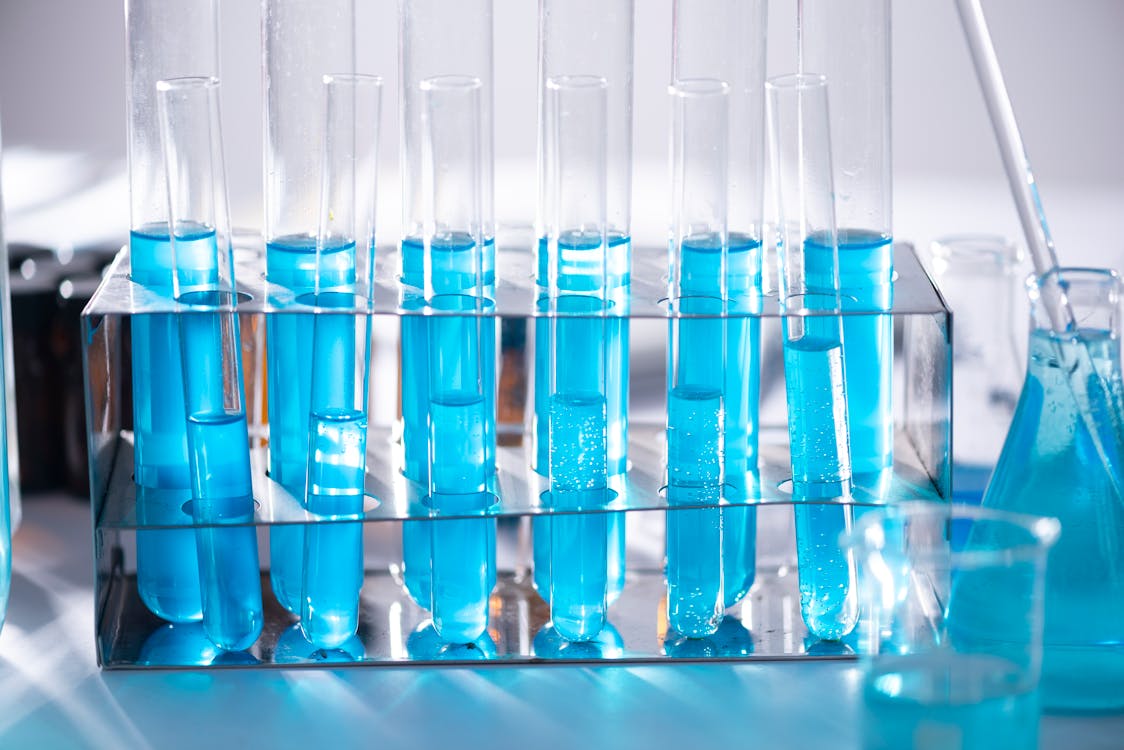Week In Review: Adagene Forms $2.5 Billion, Four-Drug Partnership With Sanofi

Image Source: Unsplash
Deals and Financings
- Adagene (ADAG), a Suzhou antibody company, will apply its masking technology to as many as four Sanofi candidates in a collaboration worth up to a spectacular $2.5 billion (see story). Adagene's SAFEbody technology applies a precision masking technology that shields the biologic's binding domain. In the tumor microenvironment, the underlying antibody is unmasked. The technology is designed to minimize on-target off-tumor toxicity in healthy tissues. The agreement is heavily backloaded: Adagene will receive $17.5 million upfront to apply SAFEbody to the initial two Sanofi candidates. Sanofi (SNY) will be responsible for clinical trials and marketing.
- Huadong Medicine (000963.SZ) will acquire Asia rights (ex-Japan) for two Heidelberg Pharma ADC candidates with options on two more in a deal potentially worth more than $1 billion (see story). The drug rights are worth up to $930 million, while Huadong will also purchase 35% of Heidelberg for $118 million. Huadong, which will make a $20 million upfront payment to Heidelberg, is very busy on the deal front currently: last week it entered a $662 million agreement to develop two Kiniksa Pharma (KNSA) anti-inflammatory drug candidates in Southeast Asia.
- Nanjing InxMed raised $50 million in a Series B round to develop innovative therapies that target the stroma microenvironment and drug resistance for hard-to-treat solid tumors (see story). The company's lead drug, IN10018, is a selective ATP-competitive focal adhesion kinase (FAK) small molecule inhibitor that is being tested in trials for metastatic melanoma, platinum-resistant ovarian cancer, and triple negative breast cancer. InxMed will use the funds to support clinical trials of IN10018 for multiple cancer types in the US and China, including starting pivotal trials. The Series B was led by CS Capital.
- Beijing Grit Science completed a Series A funding that raised "hundreds of millions of RMB" (at least $30 million) for its gene therapy operations (see story). Founded in 2019, the company plans to apply its AAV gene therapy technology to liver diseases and neurological disorders, building a pipeline for both rare and common diseases. Grit has already developed an AAV gene therapy for hemophilia A that has started an investigator-led trial. It said the early readout of the novel candidate showed positive safety and efficacy data. The A round financing was led by Sequoia Capital China.
- Haisco Pharma (002653.SZ) in-licensed China rights to Exservan™, an oral film formulation of riluzole for patients with amyotrophic lateral sclerosis, from Aquestive Therapeutics (AQST) of New Jersey (see story). Riluzole is a disease-modifying therapy for ALS, but patients often become unable to swallow a pill. The oral film allows them to continue therapy. Haisco will make a $7 million upfront payment and be responsible for regulatory and commercialization of Exservan in China. It will also pay milestones and double-digit royalties on sales. Haisco, a Chengdu company, offers specialized medical products to China patients.
- Shanghai Zhongze Therapeutics in-licensed a CNS candidate from Digestome Therapeutics, a San Francisco biotech (see story). DGX-001 is a oral first-in-class candidate designed to stimulate the central nervous system via the gut-brain-axis using the vagus nerve. The candidate is aimed at treating negative symptoms and cognitive impairment in schizophrenia, and for non-motor symptoms in Parkinson's Disease. Digestome is set to start US clinical trials of DGX-001. Zhongze has two clinical stage CNS candidates and three molecules in pre-clinical development. Terms of the agreement were not disclosed.
- OBiO Technology (Shanghai). a gene therapy company, signed a memorandum of understanding with Korea's Eutilex to manufacture Eutilex's cell therapy products in China (see story). Eutilex's portfolio includes innovative T cell, CAR-T cell and antibody therapies for cancer and autoimmune diseases. Eutilex plans to start clinical trials of its killer T-cell therapy (EBViNT) and its CAR-T therapy in China. OBiO will be responsible for building a GMP facility to manufacture viral vectors, tumor viruses and the company's CAR-T in China.
Trials and Approvals
- Nanjing Legend (LEGN) and Janssen Pharma reported the US FDA approved their partnered CAR-T therapy as a fifth-line therapy for relapsed or refractory multiple myeloma (see story). Carvykti™ (ciltacabtagene autoleucel) will compete against an already approved CAR-T, Abecma, which was developed by Bristol Myers Squibb and bluebird. According to Endpoints News, the Legend-Janssen CAR-T is priced at $465,000, slightly higher than the $419,500 for the BMS drug. Janssen-Legend contend that their drug has an advantage in long-term efficacy that will overcome their drug's higher price and second-to-market status.
- Transcenta (6628.HK), a Suzhou biopharma, has dosed the first patient in a China Phase IIa trial of its Claudin18.2 mAb in biliary tract cancer patients (see story). The trial will test the candidate as a first-line therapy, combined with cisplatin and gemcitabine, in patients with locally advanced or metastatic disease. As a rare malignancy, biliary tract cancer includes cholangiocarcinoma and gallbladder carcinoma. Most patients with these diseases are not candidates for surgical resection because they are usually diagnosed after the cancer has become metastatic. Available therapies are often ineffective.
- AnHeart Therapeutics (Hangzhou) and Suzhou Innovent (1801.HK) said their partnered ROS1 tyrosine kinase inhibitor received China Breakthrough Therapy Designation (see story). In a China Phase II trial, taletrectinib posted a 90% response rate in ROS1 fusion-positive NSCLC patients who had not been previously treated. Taletrectinib is a novel next-gen ROS1 inhibitor that targets ROS1 fusion mutations with potential to treat both TKI-naïve and pre-treated patients. In 2021, Innovent signed a $189 million agreement with AnHeart for co-comercialization rights tor taletrectinib in Greater China.
Disclosure: None
Comments
Please wait...
Comment posted successfully
No Thumbs up yet!



